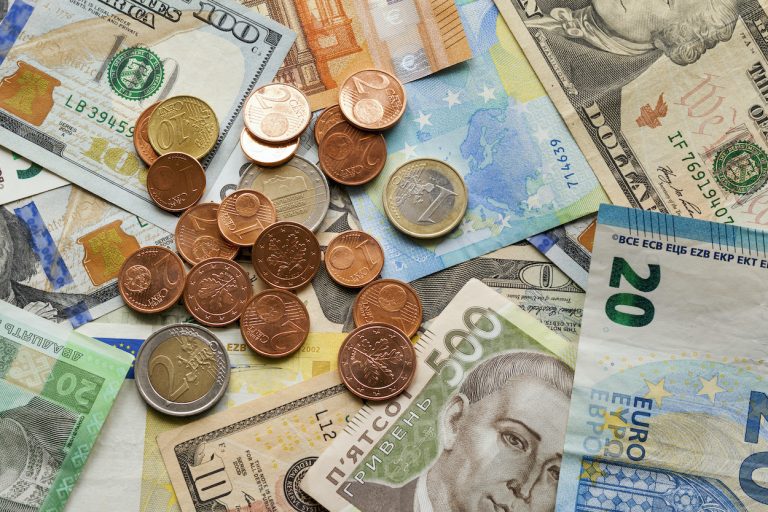In recent days it appears that recessionary fears, which at first revolved mainly around the United States and the Fed, are now heading toward Europe, which is again under attack from the stagflationary effect of energy price rises as supply of Russian resources declines. Photo credit: Freepik
Czech Republic, June 9 (BD) – The Czech currency continues to stagnate against the euro, weakening by one cent to 24.76 CZK/EUR from Monday’s close before the weekend. Against the dollar, the koruna weakened along with the euro to 24.35 CZK/USD, ending with a loss of more than 60 cents to its weakest level since May 2020, according to data from Patria Online.
According to Wood & Company analyst Vojtech Bohac, the weakening of the Czech currency against the dollar is mainly due to holiday trading in recent days. The euro fell to 20-year lows against the dollar on Tuesday and Wednesday due to rising energy prices and possible shortages, which have raised fears of a recession and energy crisis in the eurozone. The current risk mainly concerns gas, which Russia can disrupt at any time. Germany is even pushing Canada to allow the blocking of turbine supplies for Nord Stream so that Russia loses its excuse for limiting supplies. But it is clear that the Russian government will have no problem finding another one if it needs. On the bright side, oil prices have fallen slighty.
While equities have managed to recover, the euro has not. The common European currency only stabilised after Tuesday’s drop to parity with the dollar. Movements like this almost always trigger a wave of speculation about whether parity will be reached or exceeded. This time is no different, and negative sentiment toward the euro persists.
The Czech National Bank’s interventions against the depreciation of the koruna continued even after the board was renewed in early July, said Jaromír Gec, economist at Komerční banka. “Based on the CNB’s 10-day balance sheet published today at the end of June, we estimate that the national central bank may have spent about 5 billion euros to defend the koruna against depreciation throughout June,” he wrote. In May, the figure may have been about 2.5 billion euros, he added.
Not so long ago, the ECB would have welcomed a weaker currency, but now it is struggling against inflation. The euro has lost more than 10 percent this year alone, which will have a major impact on prices of already expensive imports of goods and commodities. This puts pressure on the central bank to intervene more forcefully by raising rates. But on top of that, it risks a new sell-off of periphery bonds, against which it must have a rescue instrument ready.
Against inflation and currency depreciation in the current environment, decisive interventions are taking place in Central Europe. The most recent example is Hungary, where the central bank has raised the 1-week rate by as much as 2 percentage points. Poland will follow with another rate tightening today.






